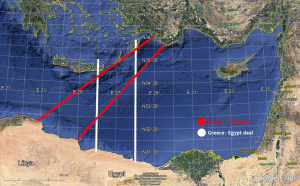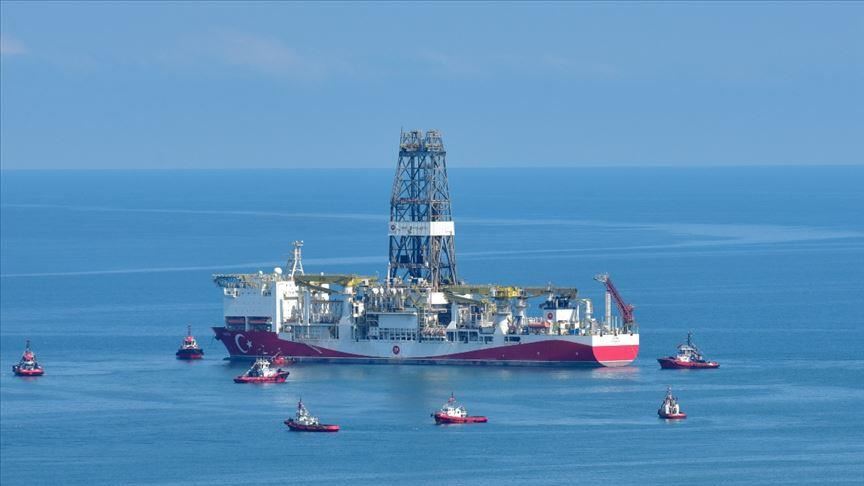The recent tension between Turkey and Greece over conflicting claims regarding maritime boundaries in the eastern Mediterranean has raised two major questions: will the rivalry escalate into any kind of violent conflict and what is the fate of the NATO alliance?
The heightened tension is the region stems from Turkey and the European Union seeking to control energy resources. Recep Tayyip Erdogan’s Turkey, in its attempts to establish a hegemonic presence in the region, has long been looking for self-sufficiency in terms of energy resources. Meanwhile, the European Union (EU) is looking to diversify its energy sources in order to reduce its dependence on Russian oil and gas. They both are eyeing the energy resources in the eastern Mediterranean, which is estimated to hold over 3.5 trillion cubic feet of gas deposits.
However, this is one of those rare conflicts in which major NATO members are facing off against each other. This is at a time when the alliance is already facing major internal divisions.
Sparring NATO allies
Greece and Turkey have had a tumultuous relationship since the 1970s, primarily around Cyprus. The island nation has been divided into two since 1974, when a Greece-backed coup led to the declaration of the Republic of Cyprus in the southern parts of the country, whereas the northern part remained under Turkish control.
Turkey has been trying to gain energy security for sometimes now and has aggressively explored the seas around it for oil and gas deposits. In February 2018, an Italian oil company was able to discover a huge gas field near Cyprus, part of the region’s massive gas deposits. In 2019, Egypt, Greece, Cyprus, Israel and Jordan signed a deal to set up an East-Mediterranean Gas Forum, excluding Turkey. The countries agreed to build gas pipelines running over 1,900 kilometers to supply gas to Europe.
Turkey responded by signing a maritime deal with the Government of National Accords (GNA) in Libya in November 2019, according to which they demarcated a continuous maritime zone. Greece and Egypt both objected to the deal, saying it violates their Exclusive Economic Zone (EEZ).
Turkey is not a signatory to the 1985 UN Convention on the Law of the Sea, which stipulates up to 200 nautical miles from the shore of a country as its EEZ. Within this zone, a country has exclusive ownership of all the present natural resources.
Turkey instead claims to adhere to a counter theory of “continental shelf”, as per which, every island (here the Greek island of Crete is in question) has just 12 nautical miles of territorial claim in the sea. Turkey thus refutes the Greek claim of violation of its EEZ.
Greece and Egypt also signed a similar deal in August, involving areas overlapping with the territories included under the Turkey-Libya deal. Turkey has called the Egypt-Greece deal “null and void”, claiming that Egypt and Greece have no mutual sea border.

On August 10, Turkey sent its seismic research vessel Oruc Reis, accompanied by warships, to the sea between Cyprus and Crete Island for oil and gas exploration. Turkey has also strengthened its defense presence in Cyprus. In response, Greece claims to have raised over 2.5 billion euros in a bond auction last week to strengthen its defenses and buy new weapons from France.
Regional and international interventions
Since Turkey and Greece are both members of NATO, Germany, another NATO member, tried to intervene last month in order to ease the tensions after Turkey renewed its aggressive postures following the announcement of the maritime deal between Greece and Egypt on August 6. The German initiative, however, failed to convince either parties to sit and resolve the issue.
Meanwhile, French president Emanuel Macron announced that violations of the Greek EEZ and threats of war against Cyprus and Greece will invite EU sanctions against Turkey. Both Cyprus and Greece are EU members. France already announced increased military presence in the Eastern Mediterranean last month, after one of its vessels was allegedly attacked by Turkish vessels.
Internal divisions within NATO
Though France, Turkey and Greece are allies in the NATO, which is based on the concept of collective security, the conflict exposes the rising tensions within the group. NATO’s secretary general Jens Stoltenberg has not said anything on the hostilities except asking the parties to resolve the issue through talks.
France, on the other hand, has been at odds with Turkey due to its role in the Libyan war, where Turkey has sent its forces and weapons in support of the GNA government. The NATO intervention in Libya in 2011 was the result of French initiatives. France is also a close ally of Egypt and sees rising Turkish influence in Libya and the region as antithetical to its regional aspirations.
French president Macron has been a fierce proponent of the idea of the death of NATO. He has proposed the formation of a European defense alliance, excluding Turkey and the US. France has also developed a close relation with Egypt in an attempt to exploit the ideological differences between the Egyptian regime and the ruling party in Turkey.
Meanwhile, Greece announced on September 8 that it will buy new weapons from France to enhance its defenses against the threats of Turkish aggression. The US also announced partial lifting of its 33-year-old arms embargo against Cyprus last week, despite the fact that such a move goes against the collective security doctrine of NATO.
At a time when the Trump administration has already demanded the European members of NATO to raise their defense expenditures and share the burden of NATO expenses, a conflict between major NATO members may strengthen internal divisions and further delegitimize the military alliance.





